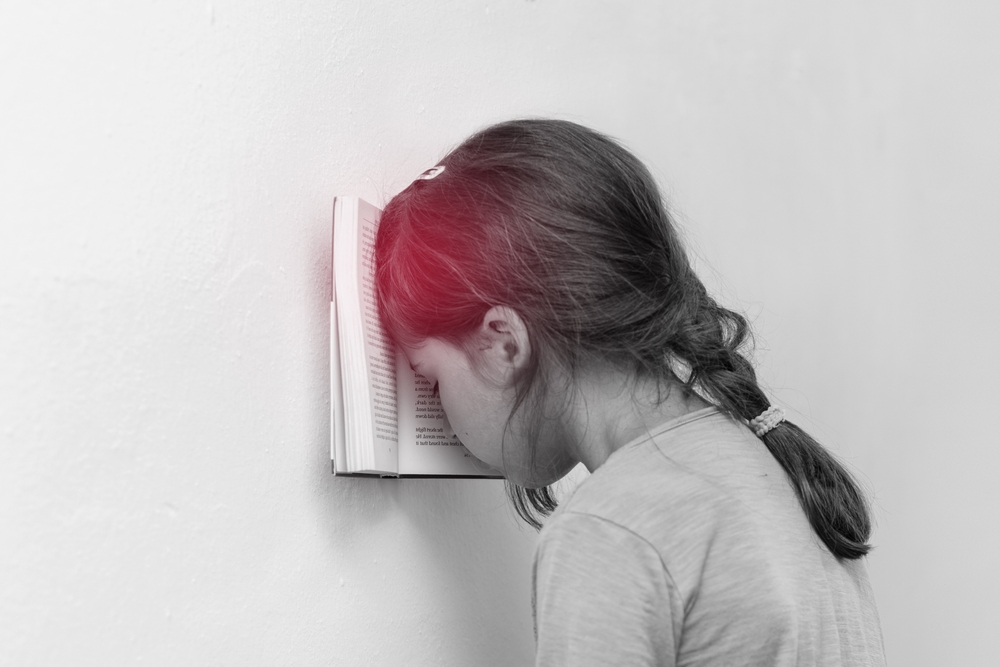
There are many reasons for why a child might struggle to read. If a child is too young, they simply might not be ready to learn to read. Other children might have learned to dislike reading and avoid it, falling behind in the process.
However, learning disorders also could be at the heart of a reading struggle. Specifically, a reading disability could cause a child to struggle. How can parents help children with reading disability diagnoses?
Helping a child with a reading disability does not have a one-size-fits-all approach because reading disorders differ. The two reading disorders include:
- Dyslexia
- Hyperlexia
Dyslexia is the better-known reading disorder. It’s characterized by trouble decoding words and understanding words. Children with dyslexia might struggle to sound out words and read fluently, but comprehension might not be a struggle if they listen to stories (like via an audiobook).
Children who are diagnosed with hyperlexia might be able to read anything, or they might simply seem to read beyond grade level. Some children with hyperlexia are never taught how to decode; the skill is innate to them. However, they might struggle with comprehension of what they read or be unable to follow along as something is read aloud.
Since these reading disorders are vastly different, helping a child who is diagnosed with hyperlexia or dyslexia will differ, too.

Reading Disorders Diagnosed
When a parent suspects that a child is struggling with reading, they shouldn’t necessarily assume that the root of the problem is related to a learning disorder or a reading disorder. Again, there could be many reasons for why a child is struggling to read.
However, a parent who is concerned about a child’s reading ability can reach out to both the school and the child’s pediatrician. While the school could initiate additional screening or evaluations to measure a child’s reading performance and determine if the child qualifies for additional intervention, a pediatrician could help parents find specialists to rule out any possible medical causes.
Pediatricians can refer parents to audiologists to test a child’s hearing (which could impact learning), psychologists who can test for any possible learning disorders or other clinicians. Conditions like dyslexia and hyperlexia can’t be diagnosed by a school; educational diagnoses are different from a medical diagnosis.
Medical professionals and clinicians, however, can identify and diagnose learning disorders and reading disorders. For example, a pediatrician could refer a parent to a neuropsychologist who can administer a neuropsychological evaluation. This type of exam or evaluation is a battery of tests to gauge a child’s intelligence (via IQ tests), academic performance (achievement), memory, processing, language, fine motor skills and more.
The benefit of a neuropsych evaluation is that it helps parents understand their child’s strengths and weaknesses. The test results are compiled into a report that can help guide parents and also give recommendations to the school on how to best help the child.
Unfortunately, not all insurance companies might cover this type of testing. Some parents who want to pursue neuropsychological testing might need to pay out of pocket.

Helping at Home
Some parents don’t have health insurance or they simply might not be able to afford out-of-pocket costs associated with medical evaluations to help diagnose their child’s struggles. Their child also might not qualify for reading intervention at school.
However, even if a child does have a medical diagnosis or receives intervention beyond the classroom, parents still might want to provide additional help. While schools can provide additional reading instruction or intervention programs, parents might wish to supplement this instruction after school.
Families might consider using a reading tutor for one-on-one instruction and guidance. Tutors vary in price, though. They might charge by the hour and require parents to commit to a specific number of sessions each month. Other tutors or tutoring companies could be a bit more lax.
For families that can’t invest in a private tutor, there could be other programs available in the community. For example, some organizations provide free tutoring to children who qualify. Some organizations help children with specific medical diagnoses or families in low-income communities.
If tutoring programs or community resources aren’t available, what can parents do to help their child? For families who can’t afford the cost of medical evaluations and whose children don’t qualify for additional educational intervention through school, what are the options?

Technology Could Bridge a Learning Gap
Technology could be a source of support for parents of children with learning disorders like dyslexia or hyperlexia. Technology has evolved to include apps and programs that are tailored to help children with specific learning needs.
For example, there are computer-based learning programs that can help children who struggle with auditory processing disorders, dyslexia and other learning disorders, too. There also are computer-based tools that can be used by children who need additional assistive technology to help them learn more effectively and succeed in the classroom.
The University of Michigan’s Dyslexia Help site includes a list of technology resources that students could incorporate into their learning. Some examples include downloading Grammarly to check spelling and grammar and using KidsRead2Kids to enable children to listen to other children read stories aloud.
Parents also could utilize tools and apps available on their mobile devices. The App Store and Google Play (for Android) include an almost endless amount of learning apps for children. Parents can find apps that help children with phonics, sight words and comprehension. Many apps are free.
There are also many app-based reading programs that are more instructional and that guide the reading journey for children who struggle. Many of these apps and programs, though, require a monthly subscription.
However, parents who don’t have the budget for a private tutor and how to bridge the learning gap for a child who might not receive additional instruction at school might find that app-based reading programs are an affordable and beneficial option. To ensure that parents find the best program for their child’s needs, parents can investigate any free trial offers.
A free trial can allow parents to preview the format and design of a specific reading program. When parents sign up for a free trial period, they should work with their child on the program and gauge their child’s interest. In addition, parents should look out for any glitches in the program or any issues with the program’s performance.
The best reading app or program should help guide the child’s reading journey. Parents should look for programs that offer interactive features and auditory feedback. Understanding how the program measures and tracks progress also is important. Parents will want to know that the program is benefitting their child, and reading data including the child’s reading level, comprehension ability, reading fluency (words read per minute) and reading time all should be accessible.
Reading Should be Rewarding for all Children
Unfortunately, some children who struggle with reading might avoid reading; others might even begin to dislike books. Reading should be rewarding for all children; tools used to help a child overcome a reading struggle shouldn’t temper a child’s interest in books and stories. The best reading programs should help children embrace literacy and learn to love the reading adventure.
Parents should look for an app or program that resonates with their child as it helps them gain reading progress and confidence. When parents find the best reading program for their child, they will know. The best reading app and program is the one that inspires a child to lose track of reading minutes because they are so engrossed in their adventure.

 Español
Español